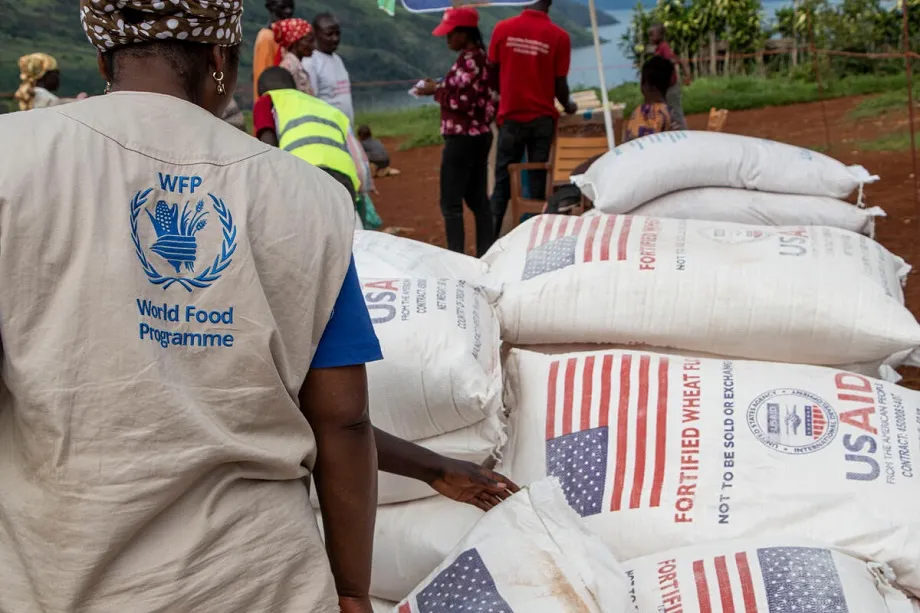Islamabad/Washington, April 10: In a swift and unexpected policy reversal, the Trump administration has moved to reinstate at least six recently canceled U.S. foreign aid programs aimed at providing emergency food assistance, according to multiple sources familiar with the developments.
This turnaround, coming mere days after the original cuts, highlights the erratic and fast-paced nature of foreign aid decisions under President Donald Trump’s leadership.
The abrupt policy swings—programs being slashed, reinstated, and then removed again—have caused widespread disruption to international humanitarian efforts.
Jeremy Lewin, Acting Deputy Administrator at the U.S. Agency for International Development (USAID), who has previously been linked with Elon Musk’s Department of Government Efficiency, sent an internal message to staff on Tuesday directing them to reverse several terminations.
Lewin specifically instructed the reinstatement of funding for the World Food Programme (WFP) in Lebanon, Syria, Somalia, Jordan, Iraq, and Ecuador.
Additionally, four awards to the International Organization for Migration (IOM) in the Pacific region were restored.
“Apologies for the constant changes on awards,” Lewin wrote in the email. “We’re juggling a lot of stakeholders and clearly need to improve how we balance these competing interests. That falls on me, and I take full responsibility.”
Earlier in the week, the administration had cut life-saving assistance for more than a dozen nations, including Afghanistan, Yemen, Syria, and Somalia.
The terminated aid packages were valued at over $1.3 billion.
Advocacy group Stand Up For Aid, which includes both current and former U.S. officials, reported that WFP contracts abruptly terminated last weekend under Lewin’s orders totaled over $463 million.
These included critical programs in Lebanon, Syria, Somalia, and Jordan.
Some of the aid programs initially scrapped had previously been granted waivers by U.S. Secretary of State Marco Rubio following earlier cuts.
A spokesperson for the State Department said those earlier waivers did not represent final decisions. The department did not respond to inquiries regarding the reinstatement of the aid programs.
Congress and Internal Pressure Spark Reversal
According to sources, the decision to restore some of the foreign aid packages came in response to pressure from both within the administration and Capitol Hill.
Lawmakers, particularly members of Congress concerned about humanitarian fallout, voiced serious concerns over the abrupt halts in assistance.
The World Food Programme issued a stark warning on Monday, stating that the U.S. had informed the organization of its intent to eliminate emergency food assistance in 14 countries.
“If this goes through,” WFP cautioned, “it could serve as a death sentence for millions of people facing acute hunger and famine.”
Despite the partial reversal, aid for Taliban-governed Afghanistan and conflict-ravaged Yemen has not been reinstated. The U.S. has historically been the largest donor to both nations, which remain in dire humanitarian conditions after years of war.
State Department spokesperson Tammy Bruce told reporters on Tuesday that the administration had serious reservations about whether aid for Yemen and Afghanistan was ultimately benefiting extremist groups such as the Houthis and the Taliban.
Bruce added that while some aid programs had been unintentionally affected by the broader cuts and were being restored, the administration was still committed to maintaining its foreign aid commitments overall.
Among the halted programs was a $169.8 million package for WFP operations in Somalia, which included essential food distribution, nutrition support for malnourished infants and children, and humanitarian air logistics. In Syria, $111 million designated for food relief was also removed.
Continued Overhaul of USAID
These foreign aid rollbacks are the latest installment in a broader campaign by the Trump administration to restructure—and critics argue, dismantle—USAID, the main U.S. agency responsible for foreign humanitarian and development aid.
Since Trump’s second term began on January 20, billions of dollars in foreign aid have been slashed as part of what administration officials have characterized as a bold overhaul.
However, insiders and observers say the process has been chaotic, inconsistent, and lacking transparency.
On Tuesday, Democratic members of the Senate Foreign Relations Committee addressed a letter to Secretary Rubio voicing their strong opposition to the proposed restructuring of the State Department, which reportedly includes plans to absorb USAID.
They described the move as “unconstitutional, illegal, unjustified, damaging, and inefficient.”
The rapid succession of policy changes has not only disoriented aid workers and partner organizations but also alarmed lawmakers and international observers who rely on stable U.S. commitments for long-term humanitarian planning.
As it stands, the Trump administration appears to be navigating between competing pressures—its political drive to reduce foreign spending and internal and international calls to maintain life-saving assistance to vulnerable populations.
Whether this balancing act will bring long-term clarity remains to be seen.
